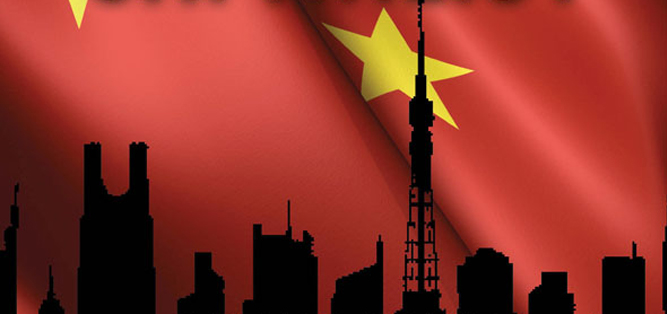Today marks the 35th anniversary of the opening of China, when earth shattering reforms were officially launched. Policy changes introduced at the Third Plenum meeting in December 1978 did not instantly make China into a capitalist country—because capitalism arises from the people’s response to freedom rather than from government policy—but it laid the essential foundation for development of capitalism. In the years since, 680 million Chinese people have been lifted out of poverty and the country has become the world’s second largest economy.

How could this miracle take place? To answer this question, we call upon Dr. Ning Wang. Dr. Wang and Nobel-Prize winning economist Ronald Coase co-authored the recently released book “How China Became Capitalist,” which brilliantly tells the story of China’s 30-year transition from a closed, communist, agrarian economy to a rapidly growing industrial economy.
Kenli Schoolland: What was it that enabled such a dramatic shift in leadership to take place at this event?
Ning Wang: It was due to the combination of many factors, some more contingent and some less so. In the first place, there was a strong demand for change among the leadership, or more accurately, a demand for furthering the kind of changes that started after Mao’s death in 1976, that is, a shift of focus from political movements to economic development.
Inside Chinese politics, Deng Xiaoping had been widely regarded as a successor to Mao (even by Mao himself). Even though Deng was deprived of power right before Mao’s death; he was never humiliated in a way that was done to other Chinese leaders who opposed to Mao, like Liu Shaoqi.
Before the Third Plenum of the 11th Party Congress, Deng was on the rise to power. His return to the center of political power was sealed at the Third Plenum.
Then, among the Chinese people, more and more of them had become exhausted, if not devastated, in Mao’s continuous class struggles. Mao’s death in 1976 gave them an opportunity for change. Many economic changes, the kind we called marginal revolutions, had already started after 1976. Such changes surely got a strong momentum after the 1978.
KS: Could the change in leadership have been anticipated prior, or was it a complete surprise to the general populace?
NW: The change in leadership, if you mean the reshuffle of personnel, was much expected. The new focus placed on economic development was not new at all. But the kind of economic and social changes, particularly their scope and speed, that happened afterwards were not something anyone could have anticipated.
KS: Was the event significant more in terms of actual policy change or simply as a symbol of a more accepting political leadership?
NW: Both were important. But it is important to keep in mind that what mattered more was not what was said in the policy, but what was not said. What had happened in China since 1978 was not something predetermined at that party meeting. It did open up more room for change in China, and what ensued is what brought more historical significance to the meeting.
KS: What do you think Deng Xiaoping would think about where China is today? Is the country still on the same track that he started?
NW: Deng might be as worried as he was before he made the 1992 southern tour. You cannot say China is now off the track he started. But in many areas, China has not moved far from where Deng left. Beijing has been hesitant to take bold actions. Chinese leaders have procrastinated in the past decade and half since Deng’s death in 1997, partly because of Deng’s success. They could afford not to take major actions in the past. Now, they realize, or have become more aware, that such procrastination cannot go on for another decade.
Third Plenums ever since 1978 have been used as an opportunity to introduce the more radical of reforms, either in the direction of free-markets or away from them. The most recent of which took place last month, and thankfully the leadership seemed to want to move the country further toward a genuine market economy. Despite vacillations in the CCP’s attitude toward the market in the years that followed Deng Xiaoping, it is undeniable that the overall trend has consistently been one of greater market involvement—and now there is no going back.
To learn more about China’s miraculous story, you can purchase Dr. Wang’s book here.





My main concern with Mr. Wang is that the book is co-authored by the so-called free market economist Ronald Coase. As this video by Hans-Hermann Hoppe reveals, the system of law favored by Coase is much more of a danger to a true free market than an aid. Enjoy some enlightenment: https://www.youtube.com/watch?v=TI-RUPQ9RdA